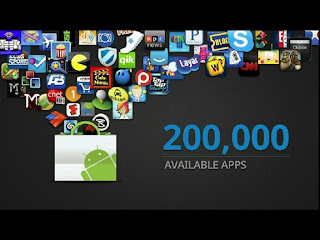By Lance Winslow
Photo: thedigeratilife.com
As more of our life ends up online, and as our realities are blurred between the real world and the virtual one, everyone will be subjected to online data, personal information, and money theft. In fact, there is a very good chance that your credit card numbers and/or banking information has already been stolen, even if the hackers or culprits never use it. The information may have been stolen in a giant batch of 100s of thousands or millions of others and you are just small potatoes, so you've been safe, at least for now.
Okay so, let's talk shall we? Solid passwords are wise, but that is still no guarantee, neither is storing your data in the cloud, after all if you can get in, so can they. Of course, that's only one challenge. Today, many of us use WiFi hotspots, public WiFi, and open WiFi systems from time to time, each time we are at risk of hacking. If we visit certain websites, we can pick up malware, computer viruses, and spyware.
Even companies you trust use super-cookies to track you, mostly for analytical data or to sell you something and profile you based on your preferences, and if you go onto social networking sites, beware, as these systems do use super-cookie tricks. Much of the data from Facebook, Google, etc, is anonymized, well, mostly, but your surfing habits and ISP do give you away.
Even if you are surfing anonymously or on a different ISP, like I said the websites visited, or inquiries on your searches will give you away. It's just amazing all the ways you can be infiltrated and hacked. Okay so, if you are ready to learn more, why not educate yourself? Why not protect your identity, and your computer system from hackers. Once you know some of the tricks, you can learn ways to be more careful. Yes, then in turn they will learn more ways to get you too.
Indeed, it is a lot like the cold war isn't it. You get better security systems, they find more ways to exploit that system, it's a never ending battle, and whether you like it or not, you are stuck in the war zone, and in the new net-centric cyber warfare battlespace. If you are not worried you should be, and if you do nothing, you are a goner. No, it's not my intention to scare you, just to let you know what's going on. What you do with this information is a personal choice, I just hope you are smart enough to make the right choice. Please consider all this, and think on it.
Photo: thedigeratilife.com
As more of our life ends up online, and as our realities are blurred between the real world and the virtual one, everyone will be subjected to online data, personal information, and money theft. In fact, there is a very good chance that your credit card numbers and/or banking information has already been stolen, even if the hackers or culprits never use it. The information may have been stolen in a giant batch of 100s of thousands or millions of others and you are just small potatoes, so you've been safe, at least for now.
Okay so, let's talk shall we? Solid passwords are wise, but that is still no guarantee, neither is storing your data in the cloud, after all if you can get in, so can they. Of course, that's only one challenge. Today, many of us use WiFi hotspots, public WiFi, and open WiFi systems from time to time, each time we are at risk of hacking. If we visit certain websites, we can pick up malware, computer viruses, and spyware.
Even companies you trust use super-cookies to track you, mostly for analytical data or to sell you something and profile you based on your preferences, and if you go onto social networking sites, beware, as these systems do use super-cookie tricks. Much of the data from Facebook, Google, etc, is anonymized, well, mostly, but your surfing habits and ISP do give you away.
Even if you are surfing anonymously or on a different ISP, like I said the websites visited, or inquiries on your searches will give you away. It's just amazing all the ways you can be infiltrated and hacked. Okay so, if you are ready to learn more, why not educate yourself? Why not protect your identity, and your computer system from hackers. Once you know some of the tricks, you can learn ways to be more careful. Yes, then in turn they will learn more ways to get you too.
Indeed, it is a lot like the cold war isn't it. You get better security systems, they find more ways to exploit that system, it's a never ending battle, and whether you like it or not, you are stuck in the war zone, and in the new net-centric cyber warfare battlespace. If you are not worried you should be, and if you do nothing, you are a goner. No, it's not my intention to scare you, just to let you know what's going on. What you do with this information is a personal choice, I just hope you are smart enough to make the right choice. Please consider all this, and think on it.
Lance Winslow has launched a new provocative series of eBooks on Hackers. Lance Winslow is a retired Founder of a Nationwide Franchise Chain, and now runs the Online Think Tank; http://www.worldthinktank.net
Article Source: http://EzineArticles.com/?expert=Lance_Winslow 


















